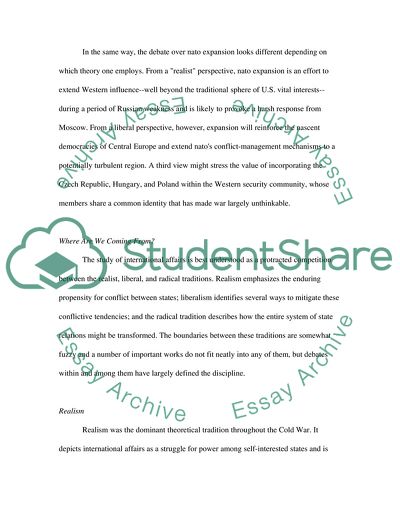Cite this document
(International Political Theorie Coursework Example | Topics and Well Written Essays - 4750 words, n.d.)
International Political Theorie Coursework Example | Topics and Well Written Essays - 4750 words. https://studentshare.org/politics/1719221-international-political-theories-how-each-theory-is-conditional-based-on-the-circumstances
International Political Theorie Coursework Example | Topics and Well Written Essays - 4750 words. https://studentshare.org/politics/1719221-international-political-theories-how-each-theory-is-conditional-based-on-the-circumstances
(International Political Theorie Coursework Example | Topics and Well Written Essays - 4750 Words)
International Political Theorie Coursework Example | Topics and Well Written Essays - 4750 Words. https://studentshare.org/politics/1719221-international-political-theories-how-each-theory-is-conditional-based-on-the-circumstances.
International Political Theorie Coursework Example | Topics and Well Written Essays - 4750 Words. https://studentshare.org/politics/1719221-international-political-theories-how-each-theory-is-conditional-based-on-the-circumstances.
“International Political Theorie Coursework Example | Topics and Well Written Essays - 4750 Words”. https://studentshare.org/politics/1719221-international-political-theories-how-each-theory-is-conditional-based-on-the-circumstances.


